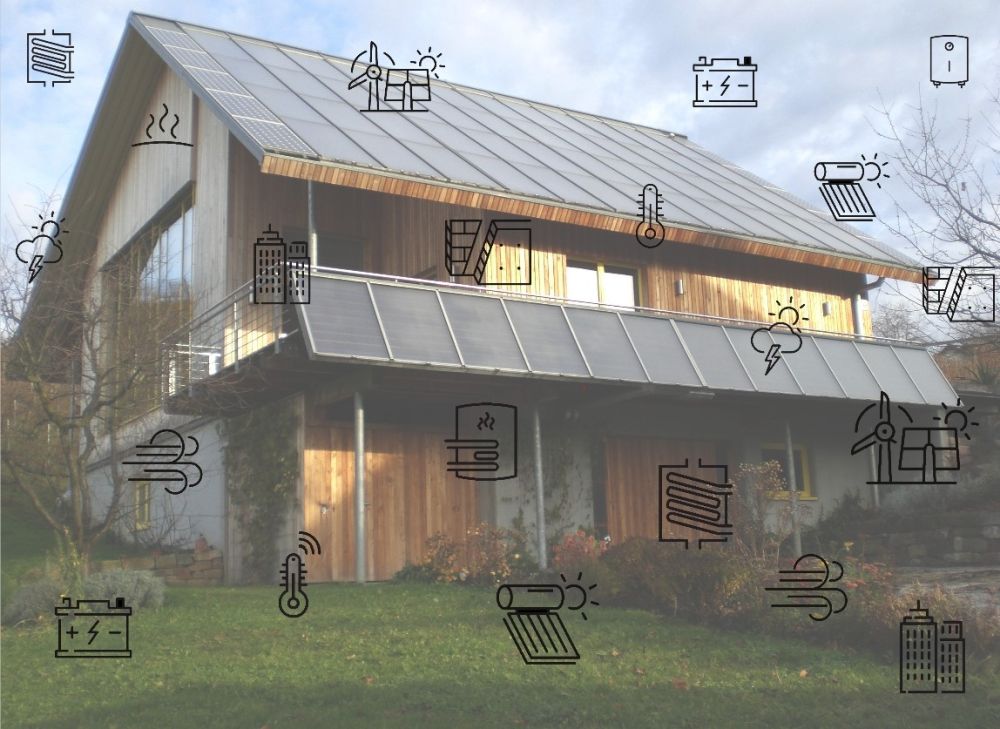| Duration: | 07/2022 - 12/2025 |
| Contracting Authority/ Sponsors: | Federal Ministry of Economic Affairs and Climate Action (BMWK) |
| Project Partners: | Fraunhofer Institut für Bauphysik IBP; Fraunhofer Institut für Gebäudeenergetik, Thermotechnik und Energiespeicherung IGTE (Uni Stuttgart) |
| Website: | www.effizientes-heizen.de |
| Project Focus: | |
Efficient Heating
Systematic Investigation and Evaluation of the Economic and Environmental Sustainability of Solar-Based Renewable Heating Systems in Comparison with Alternative Systems.

More and more consumers and investors want heating systems that are both sustainable and economical. To date, there is no uniform data and model basis for evaluating technologies across all technologies. This is essential for consumers' investment decisions as well as sustainable product development by manufacturers and the optimal coupling of different heating technologies.
The »Efficient Heating« project aims to close this gap and provide a methodology for the comparable ecological and economic evaluation of different heating systems and define suitable data formats. In addition, reference heating systems and scenarios for single-family and multi-family houses in various states of renovation will be developed.
The ecological and economic comparison of heating systems is particularly important for heating systems based on renewable energies, as they often have higher investment costs at the time of installation and, due to an increased material inventory, a higher ecological environmental impact. This is a circumstance that can deter investors and end-users from solar energy-based systems, despite low costs and environmental impacts during the use phase.
It is therefore imperative to provide end users and investors with a way to select the most economically and environmentally sustainable solution. This comparability also allows the identification of economically beneficial solutions for the heat transition and the estimation of the impact of controlling measures. Cost and impact assessments are carried out on the basis of life cycle (cost) analyses, which have so far been based on a wide variety of assessment approaches and framework conditions and are therefore incomparable. The »Efficient Heating« project aims to remedy this deficiency and therefore aims to further develop the methods that enable such comparability. The scope covers common heating systems for single and multi-family houses. Where necessary, the data basis for this is also to be built up, expanded and made available to end users and investors.
The basic technology-specific data must fulfill a multitude of different aspects and requirements for the evaluation. The complex interrelationships between these data are to be recorded, prioritized and investigated in a targeted manner, with a particular focus on alternative materials, components and manufacturing processes. The evaluation of heating systems will be carried out both at the product level and in the overall system, and will conclude with an economic perspective. With regard to the ecological evaluation, the life cycle assessment method will be fundamentally used. Since the problem was also recognized internationally, Task 71 »Life Cycle and Cost Assessment for Heating and Cooling Technologies« was founded in the SHC program of the International Energy Agency. The management of the task and the national cooperation are also carried out within the project. In order to ensure that the results are meaningful across all technologies, the work is being carried out in close cooperation with the heating industry and building management associations.